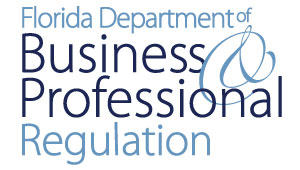BLOG
For condominium associations in Florida, enforcing rules against unit owners who are in violation does not require costly and prolonged litigation in circuit court. Condominium associations have the option of using the Mandatory Non-Binding Arbitration Program under the Division of Florida Condominiums, Timeshares, and Mobile Homes for quick and fair resolutions to the vast majority of disputes involving enforcement of restrictions found in an association’s governing documents. In fact, condominium associations are not allowed to take disputes involving pets, unapproved construction/modifications, nuisance violations, elections and meetings to the local courthouse without first filing a petition for arbitration under this state program.
Prior to filing a petition for arbitration, the unit owner must be given written notice of the violation and a reasonable amount of time to cure the violation (or cease and desist from the violating activity). If the owner refuses to comply or re-violates, then a petition for arbitration may be filed with the division of condominiums by the association’s counsel.
 Once the petition is received and reviewed by the division of condominiums in Tallahassee, the arbitrator who is assigned to the case accepts jurisdiction and sends an Order Requiring Answer to the owner via certified mail. The Order requests that a written response to the petition be filed by the owner within 20 days of the owner’s receipt of the Order. Once the arbitrator receives a response from the owner, he or she will either enter a final decision or refer the response to the attorney for the association in order for them to review and refute the owner’s defenses. Shortly thereafter, the arbitrator will either enter a summary disposition or set the matter for a final hearing.
Once the petition is received and reviewed by the division of condominiums in Tallahassee, the arbitrator who is assigned to the case accepts jurisdiction and sends an Order Requiring Answer to the owner via certified mail. The Order requests that a written response to the petition be filed by the owner within 20 days of the owner’s receipt of the Order. Once the arbitrator receives a response from the owner, he or she will either enter a final decision or refer the response to the attorney for the association in order for them to review and refute the owner’s defenses. Shortly thereafter, the arbitrator will either enter a summary disposition or set the matter for a final hearing.
All appearances with the arbitrator are via telephone, or for the rare, complicated case a live web-conference is used. Arbitration cases typically take from two to six months from start to finish depending on the nature of the violation and the owner’s defenses, if any.
In the case where the arbitrator’s decision is favorable to the association but the owner still refuses to comply, the association is required to file a complaint in county court to confirm the arbitration award, which is routinely quickly confirmed since the award is admissible into evidence for the court to consider. With that judgment, the association is then able to impose all of the penalties and consequences that its policies allow, including recovery of its attorney’s fees and costs from the owner.
In general, condominium associations would be well advised to take advantage of the arbitration program to enforce their policies and restrictions when they are disregarded by rogue owners. The arbitrations are designed to be inexpensive and expeditious for both the associations and their members, who in most cases are not represented by counsel. However, many associations are still reluctant to use this process to enforce the rules against owners who are in violation, even when the owner blatantly refuses to comply. For these associations, not enforcing the restrictions may result in the waiver or loss of the right to enforce those restrictions in the future, which would be unfair to all other members who follow the rules.
Our community association attorneys in South Florida regularly work with many of our condominium association clients to enable them to utilize this arbitration program in order to effectively and cost-efficiently enforce violations against noncompliant owners. We write about important issues for condominium associations such as this in our blog on a regular basis, and we encourage members, directors and property managers to enter their e-mail addresses in the subscription box on the right in order to automatically receive all of our future articles.

